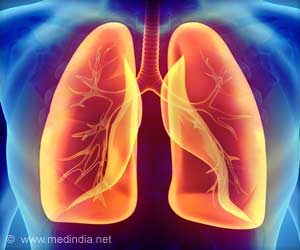A recent research has found that full brain development in adolescents takes place between 10 to 12 years of age.
A recent research has found that full brain development in adolescents takes place between 10 to 12 years of age.
The National Institutes of Health (NIH) MRI Study of Normal Brain Development began in 1999, and is documenting structural brain development and behaviour from birth to young adulthood.The analysis, led by Deborah P. Waber, PhD in the Department of Psychiatry at Children’s Hospital Boston, focused on cognition and behaviour in healthy 6- to 18-year-olds registered at Children’s and five other metropolitan areas across the United States.
“This report – and many others that will follow – provides a comprehensive set of benchmark values that clinicians and scientists studying brain development can reference for many years to come,”said NIH Director Elias A.Zerhouni, MD.
Once enrolled, the children underwent MRI scans of the brain and completed a battery of behavioural and cognitive tests to determine their overall IQ, verbal ability, mental processing speed, spatial ability, memory, fine motor dexterity, psychosocial function, reading and calculation ability, and other measures of cognitive function. Most have returned two more times so that their development can be tracked.
Results showed that age predicted performance on every measure of cognitive function. Performance climbed sharply from age 6, but levelled off overall for most tests between 10 and 12 years of age, then improved more slowly or not at all during adolescence.
Other findings revealed that sex predicted hardly any aspects of cognitive function, with gender effects less rampant than in some previous studies. Boys performed better on perceptual analysis, and girls performed better on processing speed and motor dexterity. Girls also showed a slight advantage on verbal learning, but by adolescence, this advantage had disappeared.
Advertisement
“We were pleasantly surprised by how well the lower-income children did when we focused on those who were healthy,” says Waber.
“We don’t know whether everyone’s performance improves more slowly in adolescence, or whether some children continue to improve while others do not, or whether our standard tests can measure what really changes in adolescence,” she notes. “As we follow these children over time, we will have a better understanding of what happens in adolescence.”
“In the past, studies of structural brain development and often studies of cognitive development were performed on samples of convenience that weren’t necessarily representative of the overall population,” Waber adds. “This study provides information on a much more diverse and representative sample, and a much larger one than previously available.”
Other components of the NIH MRI Study of Normal Brain Development include structural brain imaging with MRI, magnetic resonance spectroscopy (MRS), and diffusion tensor imaging (DTI) to study the development of different brain structures and the creation of connections between them, and even changes in brain chemistry.
The final goals of the project are to offer a plan of the development of the healthy child’s brain and to link the imaging findings with neurobehavioral function.
Source-ANI
LIN/B









